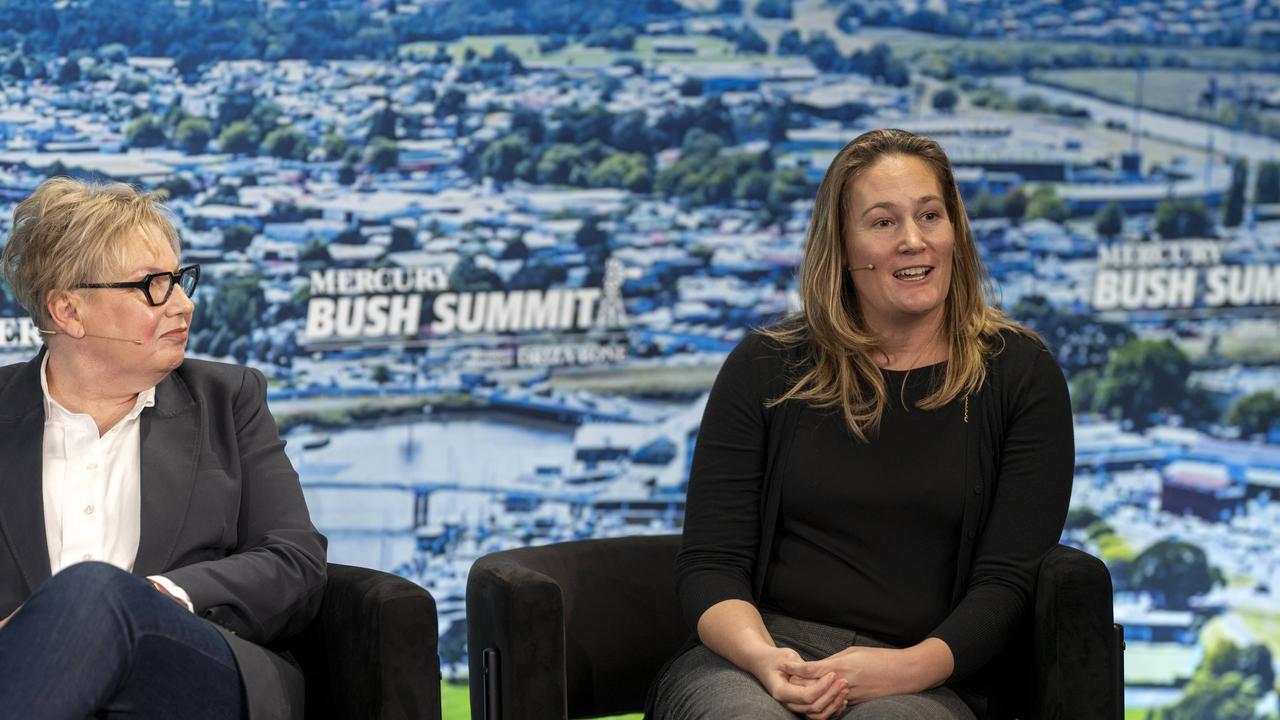Huon Valley farmer Andrew Scott took 20 years to develop the perfect export apple
A Huon Valley farmer took 20 years to develop the perfect export apple and his efforts have paid off. Why it is so good. >>
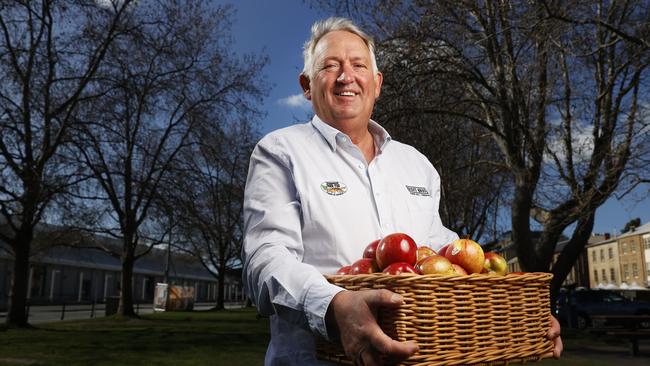
Bush Summit
Don't miss out on the headlines from Bush Summit. Followed categories will be added to My News.
It’s taken more than 20 years for Huon Valley apple grower Andrew Scott to produce the perfect export apple which is now enjoying great success in Asian markets.
The tiger fuji – described as a large, incredibly sweet and striped apple – has firm but delicate flesh that keeps well. It is perfect for making the journey from the Scott Brothers’ 32ha orchard at Cairns Bay, in the Huon Valley, to Taipei, Taiwan.
Mr Scott recently returned from Taiwan, seeing first-hand the buzz about his apples during the country’s mid-autumn festival.
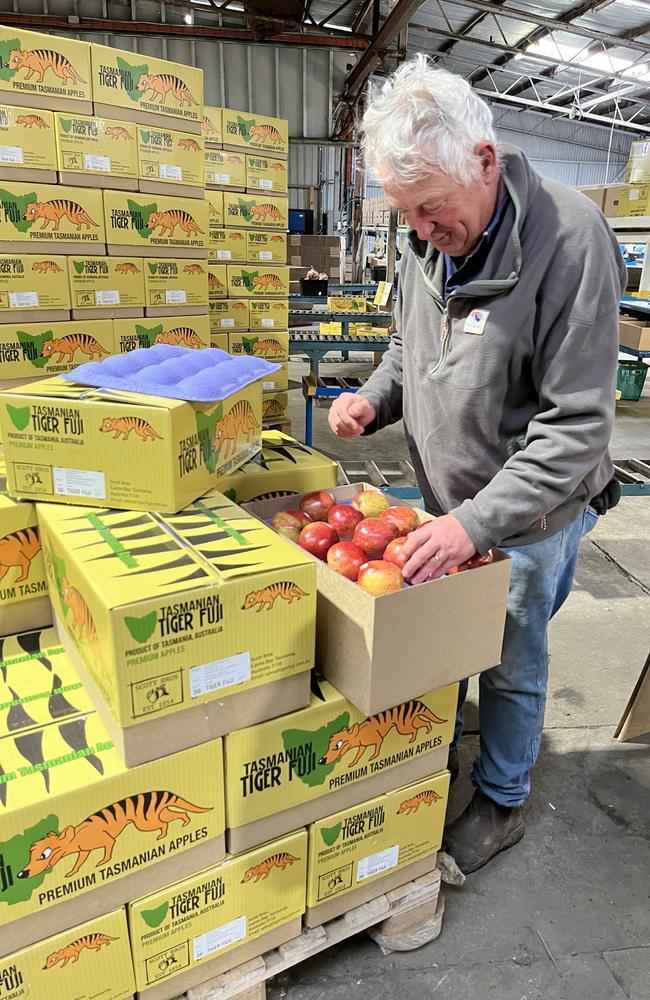
“There is a whole other appreciation for fresh produce and food in Asian markets, so it naturally becomes a big focus for our businesses and I’m sure many other Tassie producers,” Mr Scott said.
REGISTER FOR THE BUSH SIUMMIT HERE
After Tasmania’s apple industry faced challenges in the 1980s and ’90s, as tariffs and shipping costs hit farmers, Mr Scott said the apple was making a “comeback”.
“Apple exports used to provide almost 60 per cent of revenue for apple producers,” he said.
“It’s not there yet, but it’s getting back.
“It’s all dependent on where the Australian dollar lies, our relations with export markets and the current state of import tariffs – if these things are kept in balance, our apple and fruit export market can flourish.”
Cherries still on top of our export fruits
Fruit exports are helping to keep the Apple Isle in the eye of the international trade market, with a fruit industry representative stating the cherry is still on top, with berries not far behind in international demand.
Tasmania is dominating in Australia’s export fruit stakes, producing more than half of Australia’s total cherry exports as well as being the nation’s largest producer of raspberries and blackberries and second-largest of apples.
In total, fruit growers produce more than $325 million each year and contribute $45 million to the state’s $4.43b export economy.
Fruit Growers Tasmania CEO Peter Cornish said Tasmania’s exponential demand for cherries overseas has led to the state’s bite-sized beauties earning top spot as a “premium product”.
“Despite the fact there are so many cherries in the market, especially in the Asian market, particularly coming from Chile, our cherries are regarded as being of a significantly better quality,” he said.
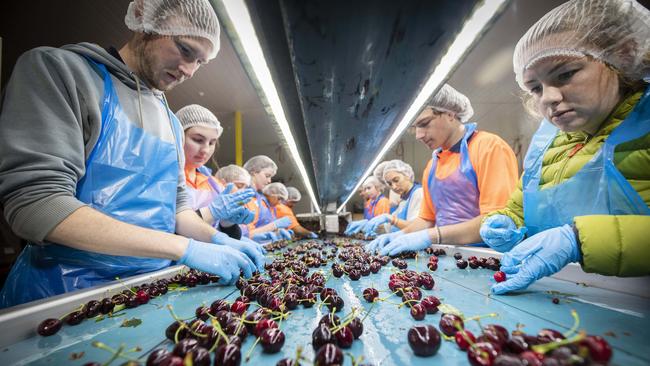
“Because of our temperate climate, the cherries are on the trees for longer, and so they’re bigger, they’re sweeter, they’re darker, and as a result, they’re tastier and that makes all the difference.”
The state’s biggest international markets for cherries and fruit include countries such as Hong Kong, Taiwan, China and Vietnam, with industry events such as the Asia Fruit Logistica (AFL) in September giving producers a chance to find market opportunities.
Mr Cornish will attend the September conference, with more events like it needed to support the state’s fruit export growth.
“There’s always room for more events, particularly from berry growers who inquire about export opportunities for their produce,” he said.
“At the moment, berries are gaining traction, but we still need to find those markets for berries and discuss issues like freight costs to ensure the process is as streamlined as possible for growers.”
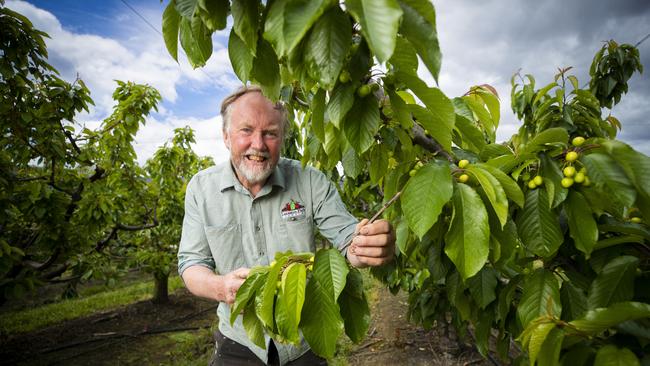
Lucaston Park Orchards owner Andrew Griggs said international demand for his cherries currently outstrips his supply.
“The demand is there for good quality cherries,” he said.
“We have expanded our production every single year, but still are not able to export to every single buyer that contacts us.”
Lucaston Park Orchards boasts a “tree to Asia in 48 hours” process for their cherries, using AI for cherry grading to speed up shipping.
Freight and transport for produce remains a barrier for further expansion and exporting of other Tasmanian produce, Mr Griggs said.
“Living on an island has its pros and cons – we get beautiful growing conditions and a pest free environment, but we also have the expensive freight costs,” he said.
“The planned expansions to the Hobart Airport runway would be a great thing in that sense as producers can skip the costs of sea freight.
“There’s even the potential for Tasmanian meat, seafood, dairy to be on-board then.”
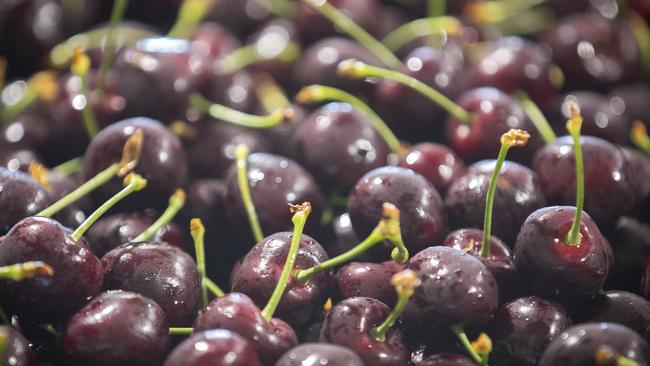
Premier Jeremy Rockliff confirmed trade was at the forefront of the state government’s plan to support business and bolster the economy, supporting the top exports in processed metals, ores and concentrates and seafood products.
“We implemented Tasmania’s first trade strategy in 2019 and have been refining our approach to boosting exports through direct engagement and diversification, with identified growth markets ever since,” he said. “Our agriculture sectors and regional communities play an important role in the $6b a year trade industry, with strong demand for Tasmanian fruit, vegetables, wine and seafood.”
Tasmania’s exports have bucked national trends of a 9.3 per cent decline to June 2024, instead holding its value at $4.4b for the last financial year.
As of June this year, processed metals and metal products, including zinc and aluminium lead in the state’s exports, with a value of $1.79b.
The state government plans to continue this growth by investing $1.6m to work with market sectors to leverage export opportunities.




